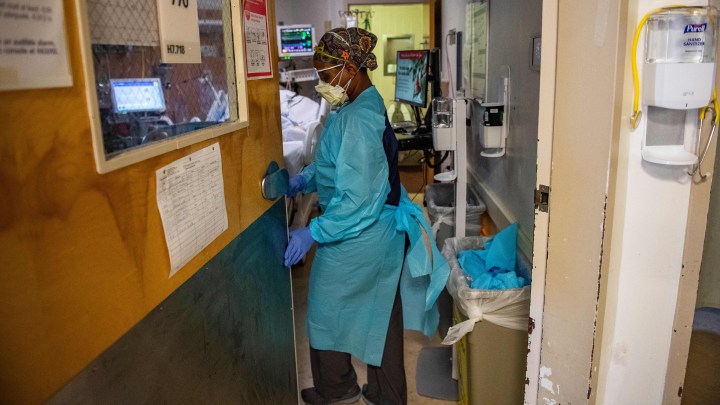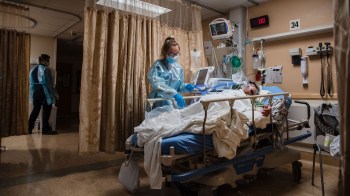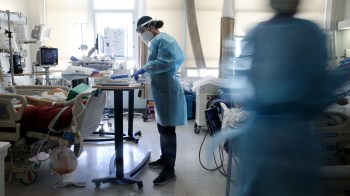
Hospitals try to manage omicron surge along with staff shortages
Hospitals try to manage omicron surge along with staff shortages

More than 300,000 people tested positive for COVID in the United States on Sunday. The seven-day average is over 700,000 positive results — and that doesn’t even take into account the people who use rapid tests at home.
Hospitals are feeling the added pressure. Of those that report data to the federal government on a daily basis, about a quarter are critically short-staffed right now.
Our Lady of the Lake Regional Medical Center in Baton Rouge, Louisiana, has been at capacity for more than a week.
“Which means we are no longer taking transfers, which is our job,” said Dr. Catherine O’Neal, chief medical officer at Our Lady of the Lake.
That’s partly because so many staff members are either sick with COVID or someone in their family has it. “We have 130 nurses or bedside caregivers out today. That doesn’t include people who help us clean rooms and turn them over and get patients in,” O’Neal said.
Because of that, she said, the hospital has had to temporarily close about 10% of its beds.
There’s been a substantial increase recently in the number of hospitals reporting critical personnel shortages, according to Dr. Jorge Caballero, who runs a volunteer organization called Coders Against COVID.
Depending on the hospital, that can mean different things. “Cutting bed capacity, cutting certain services, including elective procedures, and trying to get health care workers back into the hospital, even if they are COVID-positive,” he said.
Because there just aren’t other options.
In Alaska, the omicron surge may be just beginning. Even though so far hospitalizations aren’t rising as fast as they did with delta, shortages are still a problem, said Jared Kosin at the Alaska State Hospital and Nursing Home Association.
“If we have more staff out, we start hitting those critical levels and have to make maneuvers to provide care,” Kosin said.
Like moving healthy staff around and delaying surgeries. Alaska hospitals are also working to build the pipeline of health care workers for the longer term, Kosin said.
Just in the last few months, they started a program to recruit more certified nursing assistants, complete with hiring and retention bonuses. “And we actually changed our training guidelines to allow for faster training.”
Already, Kosin said, it’s making a difference.
There’s a lot happening in the world. Through it all, Marketplace is here for you.
You rely on Marketplace to break down the world’s events and tell you how it affects you in a fact-based, approachable way. We rely on your financial support to keep making that possible.
Your donation today powers the independent journalism that you rely on. For just $5/month, you can help sustain Marketplace so we can keep reporting on the things that matter to you.


















